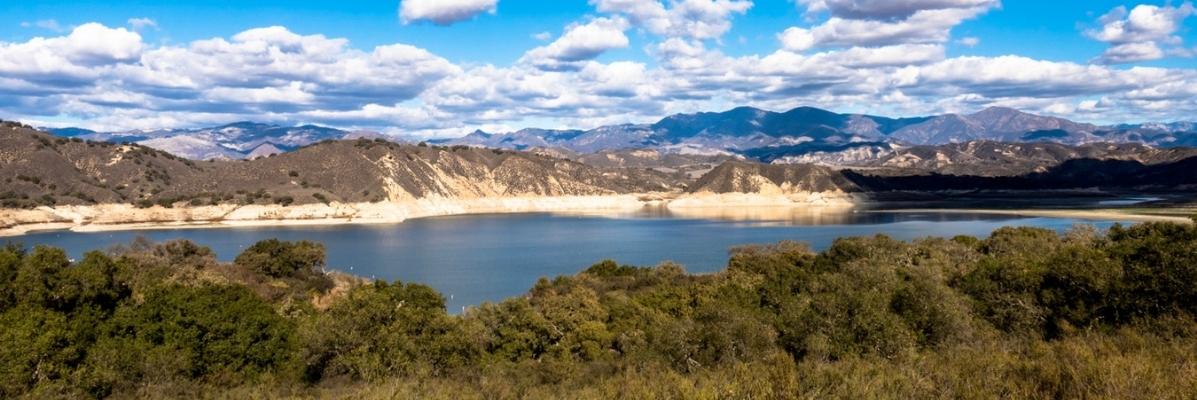
April marked the Commission’s first hybrid meeting where the public participated both in-person (in the City of Goleta) and virtually. It also marked the first meeting that included two site visits, which were to the Rincon Island and Piers 421 oil and gas decommissioning project sites. The Commission expressed its gratitude to the City of Goleta for hosting the Commission and to Mayor Paula Perotte for welcoming the Commission. The staff reports and comment letters associated with the meeting are available on the Commission’s website. The Executive Officer’s report has additional information about a wide array of initiatives and projects the Commission is leading. Below are highlights from our very full agenda.
Leases, Permits, and Other Approvals
The Commission issued dozens of new leases and permits that authorize the use of sovereign land in Northern California, the Bay/Delta area, and Central and Southern California. The Commission also exercised its oversight authority over legislatively-granted lands by considering several tideland trust expenditures and exercised its fiduciary responsibilities related to the oil and gas operations on granted lands in the City of Long Beach.
Pier 421 (Ellwood piers in the city of Goleta) Decommissioning project
This project is the Commission’s first major decommissioning project in the Ellwood Fields offshore Santa Barbara. The Commission certified an Environmental Impact Report that analyzes the environmental impacts of removing two oil piers and a connecting access roadway. The two derelict piers are the last vestiges of pier-based oil production in the Santa Barbara Channel. The Commission approved the removal of the piers, which reside on public lands, and will continue to facilitate solutions to funding future removal of the roadway. The project will remove beach obstructions, eliminate potential long-term hydrocarbon releases from contaminated soil, improve water quality, and increase public access to the beach.
Briefing on the Offshore Oil and Gas Production and Pipeline Leases Managed by the Commission
Interest in ending offshore oil and gas production has grown in recent months following last October’s offshore oil spill in southern California from a pipeline in federal waters. This interest has resulted in state legislation that would require the Commission to look at ways to accelerate the end of the offshore oil and gas leases it manages. Against this backdrop, staff briefed the Commission about the status of its offshore oil and gas production and pipeline leases and the statutory framework governing these leases and operations. The briefing provided comprehensive information about the 11 remaining active oil and gas producing leases and the 13 pipeline leases that the Commission manages, as well as information about the oil and gas operations offshore in the City of Long Beach. This overview was also an opportunity to focus on California’s evolving transition away from fossil fuel extraction and how the Commission can be part of California’s clean energy future. During the presentation, staff noted that in the last six years, the Commission has facilitated the termination of 10 offshore oil and gas leases, returning over 20,000 acres to California’s coastal sanctuary.
Ocean Protection Legislation
The Commission voted to support AB 1832 (Luz Rivas) that would ban deep seabed mining in state waters and AB 2109 (Bennett) that would ban using bait, chum, or lure to attract great white sharks in state waters. AB 1832, supported by dozens of environmental organizations, will protect the deep sea from destructive and irreversible seabed mining. AB 2109, supported by the Monterey Bay Aquarium, Defenders of Wildlife, and Oceana, will make the oceans safer for human use and ocean activities and safer for great white sharks. Both bills are designed to protect the ocean and align with the Commission’s public access and public trust responsibilities.
Port Stimulus Funding
The Commission approved allocating additional funding to California ports to help offset losses from the COVID-19 pandemic and assist ports with their economic recovery. The total amount for this second disbursement is $106,867,053. This funding, authorized in the state budget act, will provide ports with the funding necessary to sustain their essential services, maintain and develop critical infrastructure, retain and create jobs, and help to revitalize California’s economic recovery following the significant negative impacts resulting from the Covid-19 pandemic. This funding is critical to help California’s ports continue to rebound and recover following the dramatic losses that ensued during the pandemic, particularly for tourism dense ports.
Sea Level Rise Action Plan
The Ocean Protection Council briefed the Commission about California’s new State Agency Sea Level Rise Action Plan, a five-year plan to advance coastal resilience through comprehensive, coordinated, and collaborative work. The actions in this plan address urgent needs by identifying new and ongoing work to accomplish in the next five years. This Action Plan includes over 80 trackable actions, covering both a regional and statewide scope, and designates the Commission as the lead agency to apply the best available science and innovation to analyze the current and future ambulatory mean high tide line and to adapt and protect public lands from the impacts of sea level rise. This work plan, the first of its kind, sets California up for a safe, equitable, and resilient future. Also of note is that the Commission is one of the agencies that contributed to developing the principles that underpin the Action Plan and to developing the Action Plan itself.
Future Meetings and Ways to Stay Informed
The Commission’s next meeting is on June 23 at 1 p.m. You can sign up on our website to receive updates about future Commission meetings. Another great way to stay informed is to follow the State Lands Commission on Twitter. You can also watch a webcast of the April meeting on Cal-Span.

